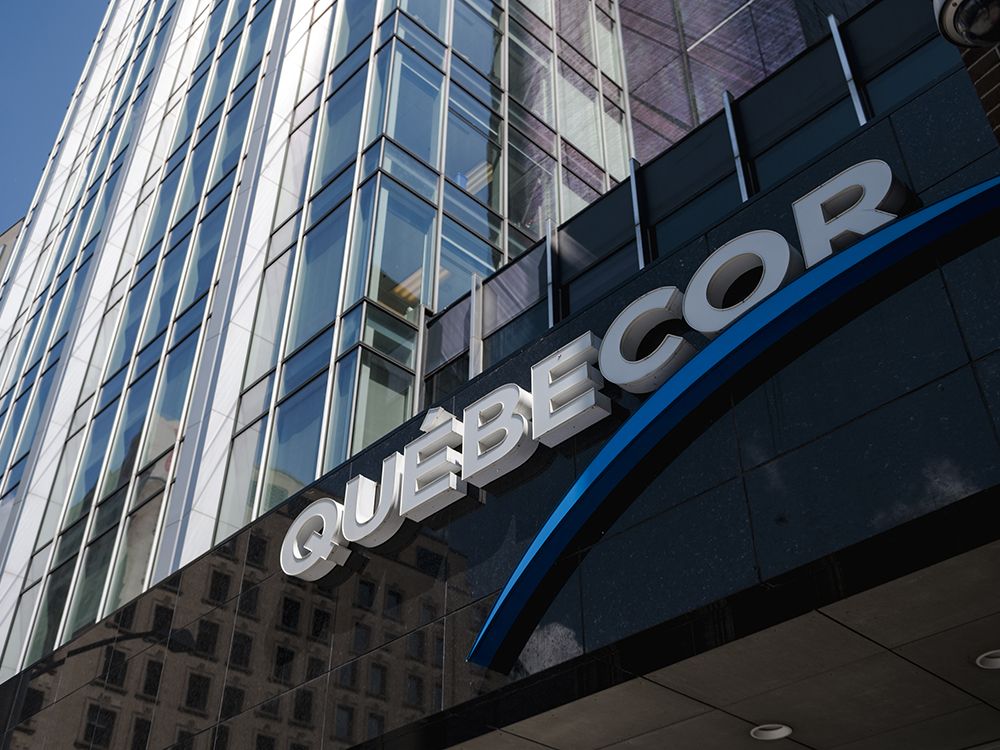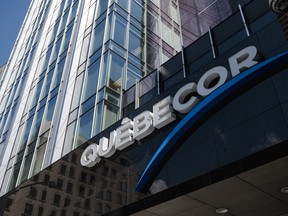Competition challenge to Rogers, Shaw merger boosts Quebecor’s chances, says industry watcher

Quebec telecom could get better deal for wireless assets now that pressure’s on

Article content
The federal competition commissioner’s opposition to the $26-billion merger of telecom giant Rogers Communications Inc. and Calgary-based Shaw Communications Inc., which became public over the weekend, could improve the chances of Quebecor Inc. getting Shaw’s wireless assets that are now certainly up for grabs.
Advertisement 2
Story continues below
Article content
Those assets, which include spectrum, could also be acquired on better terms, whether that’s price or network-sharing arrangement, or both, industry watchers say.
“The Competition Bureau’s (CB) opposition to Rogers’ proposed remedy solutions puts Quebecor in an improved negotiating position,” Bank of Montreal telecom analyst Tim Casey said in a note to clients Sunday night.
“Rogers now has a weaker negotiation position with any potential remedy partner. This could include a lower price and/or more onerous operating conditions to close the deal, including a network sharing arrangement.”
Quebecor, which has openly challenged the national wireless dominance of Rogers, Telus Corp., and BCE Inc.’s Bell network and pledged to bring down wireless prices for consumers as it has done in its home province of Quebec, was not seen as a favoured buyer by Rogers, a company it has tangled with in court over previous network-sharing arrangements.
Advertisement 3
Story continues below
Article content
But industry-watchers say pressure to get the deal done could bring the parties together or force other concessions by Rogers, with a $1.2-billion break fee in the mix.
Rogers and Shaw issued a joint statement late Friday saying they remained committed to their merger — and selling Shaw’s Freedom Mobile wireless assets to get it done — even though the Commissioner of Competition is expected to file an application with the Competition Tribunal opposing their proposal.
“We do not believe the deal is dead,” BMO’s Casey wrote. “In our view, Rogers and Shaw are highly motivated to reach a settlement with a remedy partner rather than pursue a path of litigation with the Competition Tribunal.”
What’s more, an “outright rejection” of the merger plan would not satisfy the government’s desire to have a viable fourth wireless player in the market because Shaw, as a stand-alone company, is unlikely to keep funding its low-return wireless operations.
Advertisement 4
Story continues below
Article content
“That’s why they sold,” the analyst wrote. “There is no plan B, in our view.”
However, he noted the purchase of the wireless assets by Quebecor would have to come with a price and conditions that would allow it to demonstrate an ability to generate better returns than Shaw was able to with a higher proportion of subscribers within the footprint of its other services.
“We still believe there is a path to a successful transaction with renegotiated remedies with an existing partner… or a new partner,” Casey wrote, speculating about both New Brunswick-based rural internet service provider and mobile network operator Xplornet Communications Inc. as well as Quebecor.
Xplornet, owned by private equity firm Stonepeak Infrastructure Partners, has reportedly emerged as a contender for the assets, which analysts have said could fetch up to $4 billion.
Advertisement 5
Story continues below
Article content
Anthony Lacavera, founder of Wind Mobile whose assets were ultimately sold to Shaw and renamed Freedom Mobile, has been public about his interest in re-acquiring the wireless operations alongside financial backers.
Jerome Dubreuil, a telecom analyst at Desjardins Securities, said in a note to clients Sunday night that he believes ongoing dialogue between the Competition Bureau and Rogers could potentially lead to a “sweetened remedy package” with one of the wireless suitors. In that case, the regulator could “walk back” its opposition to the merger, the analyst wrote.
If this does not happen, he said, the proposal would wind up before the Competition Tribunal in a process that could take six to 12 months in the absence of expedited proceedings the Competition Bureau is expected to request.
Advertisement 6
Story continues below
Article content
-

Competition authorities ‘opposing’ $26-billion merger of telcos Rogers and Shaw
-

Rogers posts strong results, says Shaw deal on track to close by end of June
The position taken by competition authorities late last week has already caused Rogers and Shaw to extend the “outside date” for closing their planned merger to July 31 from the initial June target.
Mark Goldberg, a seasoned telecommunications consultant, said the decision by the Commissioner of Competition to file an application opposing the merger of Rogers and Shaw doesn’t mean the deal is dead.
He pointed out that the Competition Bureau and the Competition Tribunal are “completely separate and have not always agreed on competition policy or interpretations,” adding that a number of significant applications brought forward by the bureau in recent years have been rejected by the tribunal or the courts.
• Email: bshecter@postmedia.com | Twitter: BatPost
Advertisement
Story continues below






